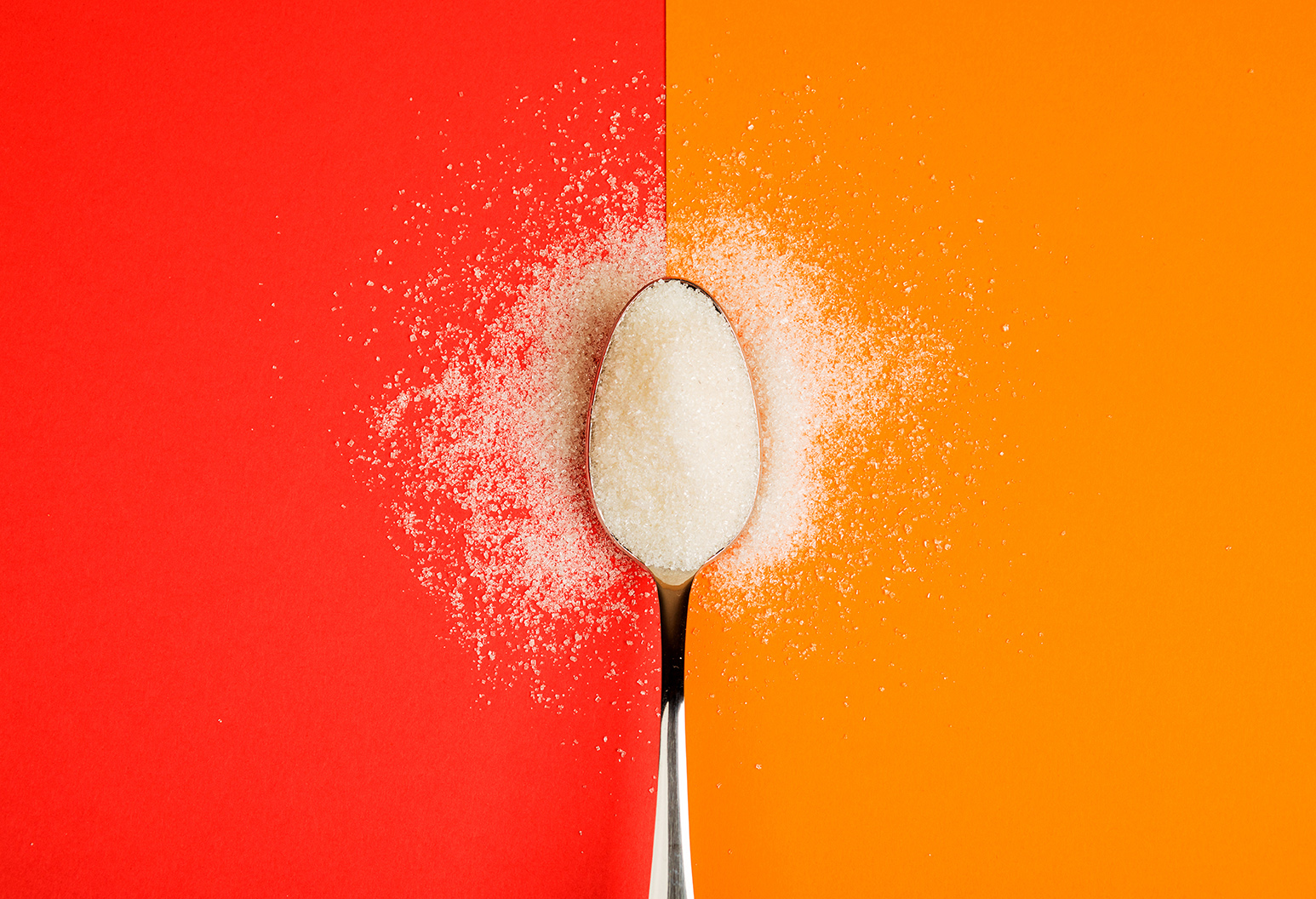By Linda Folken, MS, RDN, CSOWM, CDN
Research suggests that daily added-sugar intake for 90 percent of Americans regularly exceeds the Dietary Guidelines’ recommendation of no more than 10 percent of the total calorie intake (The American Heart Association suggests we limit added sugar to 24gms/day for women and 36gms/day for men). When we consume high amounts of sugar, we become more prone to developing diseases such as obesity, heart disease, diabetes, Alzheimer’s, depression and even some types of cancer.
Reducing or cutting out sugar can increase our quality of life no matter what our age or health status. This doesn’t mean we should cut out all forms of sugar. Natural sugars found in fruit, some dairy products, and vegetables, which also contain nutrients like fiber, vitamins and minerals, are not associated with the health risks mentioned above. In fact, they are considered very important parts of a healthy diet when consumed in the proper amounts.
Here are five things that can happen when you cut down on sugar:
- You might lose a few pounds. Your total calorie intake decreases as you eat foods without added sugars. One research study suggests this could be a possible 14 percent decrease in total calories, which may mean you could consume 210 fewer calories when based on a 1,500-calorie a day intake. Just by cutting down on your added sugar intake you could lose one to two pounds per month.
- You’ll decrease your diabetes risk. Cutting added sugars can help to keep your blood glucose levels within healthy parameters and makes it easier to control weight, both of which lower your diabetes risk. Added sugars contribute to excess calories, and excess calorie intake leads to weight gain. Weight gain, along with higher blood glucose levels from consuming added sugars, leads to insulin resistance. Cutting down on added sugars is key in stopping this cycle.
- You’ll curb your sugar cravings. When you take in sweet treats like cake, cookies or candy, your brain tells your body you’re not full, and you then have the urge to eat more to feel satisfied. Increased intake of sugary foods or beverages fuels the increased frequency of cravings. When consumption of sugary foods and beverages decrease, the brain stops telling the body that it needs more sugar to feed the sugar craving cycle.
- You can lower your risk for depression. Improved mental health is another advantage you might experience when you cut added sugar. This is because higher intakes of added sugar are associated with a significantly greater likelihood of experiencing episodes of depression, anxiety, and other mental health issues. Researchers think this stems from inflammation in the brain that is triggered by added sugar’s higher glycemic index, and that this occurs through added sugar intake and not from natural sugars or carbohydrates.
- You’ll have more energy. An increase in overall energy is one of the immediate perks you may notice when decreasing your added sugar intake. This is largely due to experiencing fewer highs and lows in your blood sugar.
Bonus tip! Want to know the quickest way to decrease added sugar intake? Look at the types of beverages you consume.
More than 50 percent of added sugar comes from sweetened beverages we consume – soda, energy/sports drinks, juices, and sweetened tea or coffees to name a few. Just by switching out sweetened beverages for their non-calorie counterparts, you may be able to cut your added sugar intake by more than half.
Linda Folken, MS, RDN, CSOWM, CDN has practiced in the health care field as a registered dietitian/nutritionist for more than 30 years. She specializes in Bariatric and Medical Weight Management.


